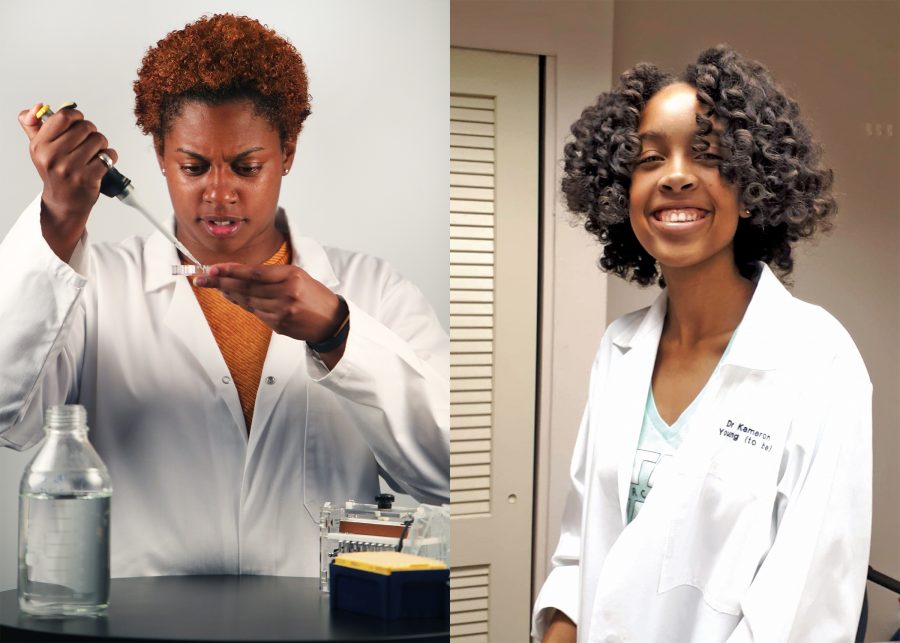Bermuda’s Own Findings on Diabetes
by Kameron Young and Dr Carika Weldon
A sweet tooth is something we all have, but can it be genetic? This is the question, a Bermudian science duo, set out to answer for Kameron Young’s Internal Assessment for her Biology class. She started by asking the question, “How does the TAS2R38 gene affect a person’s preference for sugar and sugar intake?”
What is TAS2R38?
TAS2R38 is a bitter-taste receptor gene and is the only known taste-receptor gene to have mutations in the DNA that affect taste perception. With 13 percent of Bermudians with diabetes, we wondered if there could be a potential link to obesity and the disease. Further insights into the causes are needed and underline the importance of studies like these, as they provide breakthroughs and lead the way to further progress in the management, treatment and potential cure for diabetes.
What is Type 2 Diabetes?
Type 2 Diabetes (T2D) is a chronic disease, in which the body is not able to efficiently use its form of energy, glucose. A healthy body produces insulin, which is a key to opening the cells and taking in glucose. Without the key, glucose cannot enter, leaving the cells without energy. In T2D, the pancreas is not able to make sufficient insulin. Due to this less efficient use of energy, a very common symptom of T2D is tiredness. It should be said that no one is born with T2D; it is developed mainly due to poor diet. High sugar intake can lead to obesity which has been directly shown to cause T2D.
Our Original Study
The study was advertised via Facebook and garnered 100 participants at ConnecTech. Our initial analysis showed that there seems to be a connection between high sugar intake and having the mutation in this gene – a mutation that causes one to taste things more bitter. This suggested that genetics may play a role. If such a test was able to inform someone that, biologically, they had a higher preference for sugar, could they then change their eating habits accordingly?
What’s Next?
Unfortunately, in our original study, there were more female than male participants (80 percent female compared to 20 percent). In addition, there were not many patients with Type 2 diabetes (not to mention, those aged 16-45 and 56 plus were amiss). As science goes, we’ve decided to collect more data, through a second study in February, where we anticipate upwards of 500 participants.
February brings not only another trial for the study, it also brings a conference hosted by The Bermuda Principles Foundation Fund, a non-profit initiative at the Bermuda Community Foundation. The conference will bring international scientists to Bermuda to share their latest research on various diseases such as cancer and diabetes.
This education day will be a place for people, regardless of scientific experience, age or background to interact and learn from each other and a panel of experts. It’s here that we will be excited to present the complete findings of our extended study. What’s the link between diabetes and genetics? We’re looking forward to bringing these findings forward to advance the overall health of the island, and the world. Stay tuned.
Diabetes 101
What We Know About T2D
- Represents 85–90 per cent of all cases of diabetes
- Usually develops in adults over the age of 45 years;
- Usually develops in Afro-Caribbean, Hispanics, Asians and Pacific Islanders
- More common in girls than in boys during childhood
- Is more likely in people with a family history of type 2 diabetes
- Is managed with a combination of regular physical activity, healthy eating and weight reduction.
Symptoms
- Being excessively thirsty
- Passing more urine
- Feeling tired and lethargic
- Always feeling hungry
- Having cuts that heal slowly
- Itching, skin infections
- Blurred vision
- Gradually putting on weight
- Mood swings
- Headaches
- Feeling dizzy
- Leg cramps
Diabetes 101, Bermuda Diabetes Association, www.diabetes.bm
Dr Carika Weldon is a 28-year old biochemist working at the University of Oxford, specialising in using DNA and RNA sequencing to better understand the genetic cause of disease in clinical patients. She is the Executive Director and Founder of the Bermuda Principles Foundation Fund.
Kameron Young is a 17-year old BHS International Baccalaureate student in her final year of study.
This article was originally published in the 2019 edition of the rg Health & Wellness supplement.

